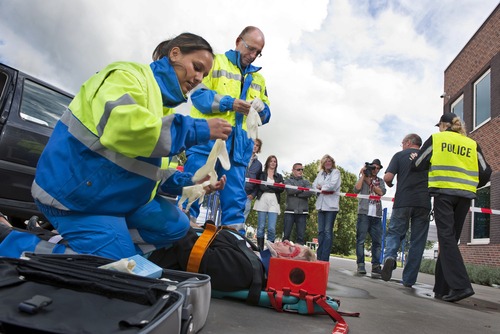
Posting to Social Media during a Car Accident Case
In 2014, a report showed that 74% of adults use the Internet for social media posting. This number grows every year, which is why it is important to remember when you shouldn’t be posting about specific details on social media. Unfortunately, every year people are injured in car accidents and turn to social media to talk about their feelings and details surrounding the case. Social media is not a good place for posting about a car accident, and today you can find out why.
Take an example of a man who was involved in a car collision in 2014. He made claims that he was suffering intermittent back pain a year after the accident. However, after the accident took place, the man proceeded to participate in cycling races and many other performances that could have made his injury much worse. He posted about these races on Facebook, where he thought he would be safe from the public eye. However, others found out about these posts and his claim was thrown out as well as any compensation he could have made for injuries.
Social Media: Where Claims can be used Against You
If you are pursuing a claim in court over injuries, it is usually because these injuries mean something to you – perhaps they have kept you from working or enjoying your life the same way you did before the accident. If you are attempting to gain compensation for your injuries, you will typically have to call upon medical experts as well as many other witnesses to validate your claim. However, the defense can work against you in this manner and try to dig up evidence to use against you. One of the best forms of evidence is what happens on your social media account.
Let’s say that somebody has suffered terrible knee and hip injuries after a car accident and claims that they cannot enjoy hiking anymore like they once could. They bring a claim because they believe that this necessary compensation will help them get back on their feet again. However, as the defense is digging up information, they come across the plaintiff’s social media profile and find that they have never stopped hiking. In fact, after the accident they took a 2-mile hike in the woods behind their house. The judge may then find that the plaintiff is not entitled to compensation because their social media photos share an entirely different story than the one they are telling.
Privacy and Best Practices
You may think that your social media life is private, but this is far from the truth. Your social media profile is actually public record and when you share, you are choosing to share with anybody. Anything on the Internet can be used as evidence against you, and this is the same for a personal injury claim. This is why it is important to realize that posting about your accident could actually be dangerous to your claim. You may think that a post isn’t related to your injury, but it actually might be. This is why you should suspend all of your social media profiles and refuse to accept new friends after you have been injured, if possible. Tell other family members to refrain from posting about your accident because it could be detrimental to your case.
If you need help with a claim, give us a call today. We are willing to help you through the entire process from start to finish. At Maggiano, DiGirolamo & Lizzi we have the experience to handle your car accident claim – so call us now!

















